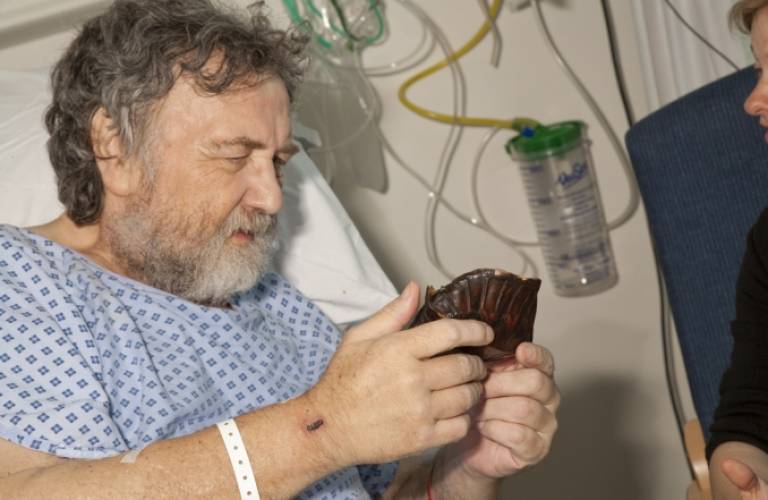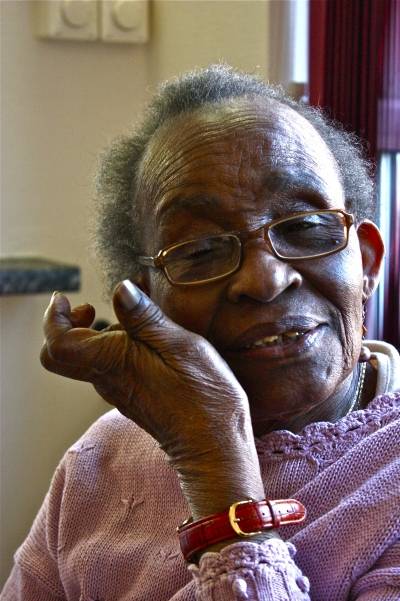Healing Heritage: The impact of museums on health and wellbeing

12 December 2014
Research on how museum activities contribute to health and wellbeing in hospitals and care homes led to the development of a new wellbeing measure refined in partnership with 20 museums and other partners. It also influenced policy and funding considerations for heritage, and led to the development of a volunteer programme.
Hospitals and care homes are commonly known to be depressing environments and many people find it difficult to work through their own feelings about their situation. Indeed, the depression caused by a stay in hospital can even lead to longer recovery times and thus longer stays. It has long been known that using objects - such as museum artefacts - as a prompt for reminiscence or conversation can help reduce stress and improve general wellbeing. However, very little robust research had been done on this subject.
Dr Helen Chatterjee (UCL Genetics, Evolution and Environment), who is also Head of Research and Teaching at UCL Museums & Collections, leads a groundbreaking collaboration between health and cultural organisations which has, for the first time, conducted a systematic study of the therapeutic effects of museum engagement and developed a way of assessing its effects on patients' wellbeing.
Through the Heritage in Hospitals research project, the therapeutic role of museums and their collections was assessed in a clinical setting in 2008-2011. Over 300 patients in various hospital and care settings participated, and Dr Chatterjee's team identified highly significant improvements in positive emotions, wellbeing and happiness, and in patients' perceptions of their own health, and positive impacts on relationships among staff, patients and their carers. As one patient remarked, "I can't listen to pop music at the moment because it reminds me of certain situations that I'm in and having to deal with, whereas this sort of stuff gets you thinking, but because it's 5,000 years old… you can't be depressed by looking at a piece of Egyptian pottery, doesn't work that way."

This was followed by a collaboration between 20 museums and other organisations (including the British Museum, and the Worcester Infirmary Museum) to develop a new measure which museum staff now use to assess the effect on wellbeing of participation in museum activities, and to train volunteers in object-handling.
As the first rigorous study of the therapeutic benefits of museum activities, Dr Chatterjee's research has made an invaluable contribution to policy debates on arts and health. It has helped raise awareness of the role culture, and specifically museums, play in society, and offered a compelling argument for supporting arts and humanities funding in this area.
Funders included the AHRC and the Heritage Lottery Fund.
Seeing people interact, discuss and have interests in new things is just amazing. [The staff] are more motivated and interested in the work they do. - Staff member, disability care centre
Related links
- UCL Touch and Wellbeing
- UCL Museum Wellbeing Measures Kit
- Touching Heritage volunteer programme
- Museums on Prescription
Images
- Hospital patient handling a museum object. Copyright UCL.
- Care home resident handling a museum object. Copyright UCL.
 Close
Close

